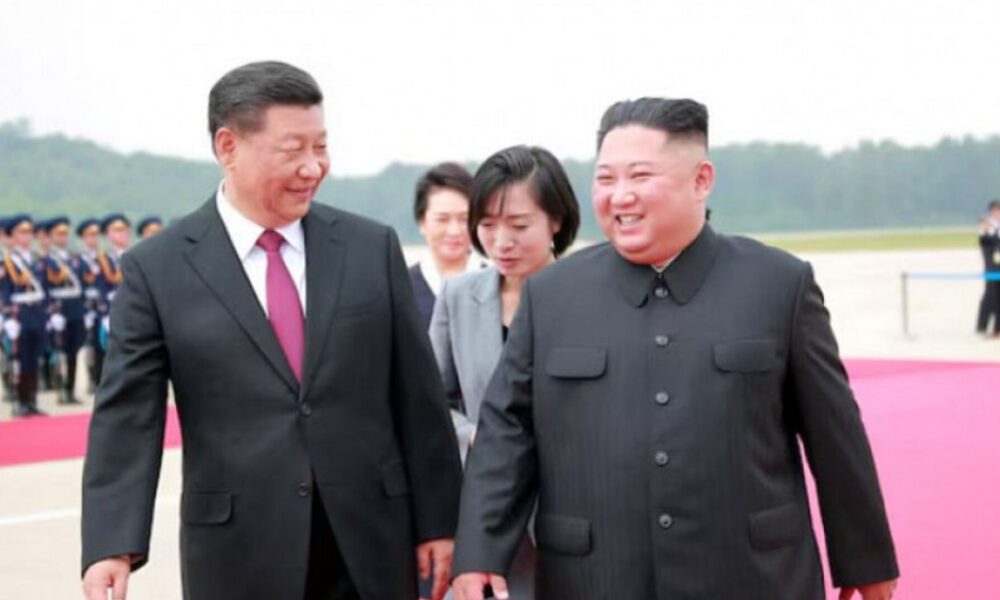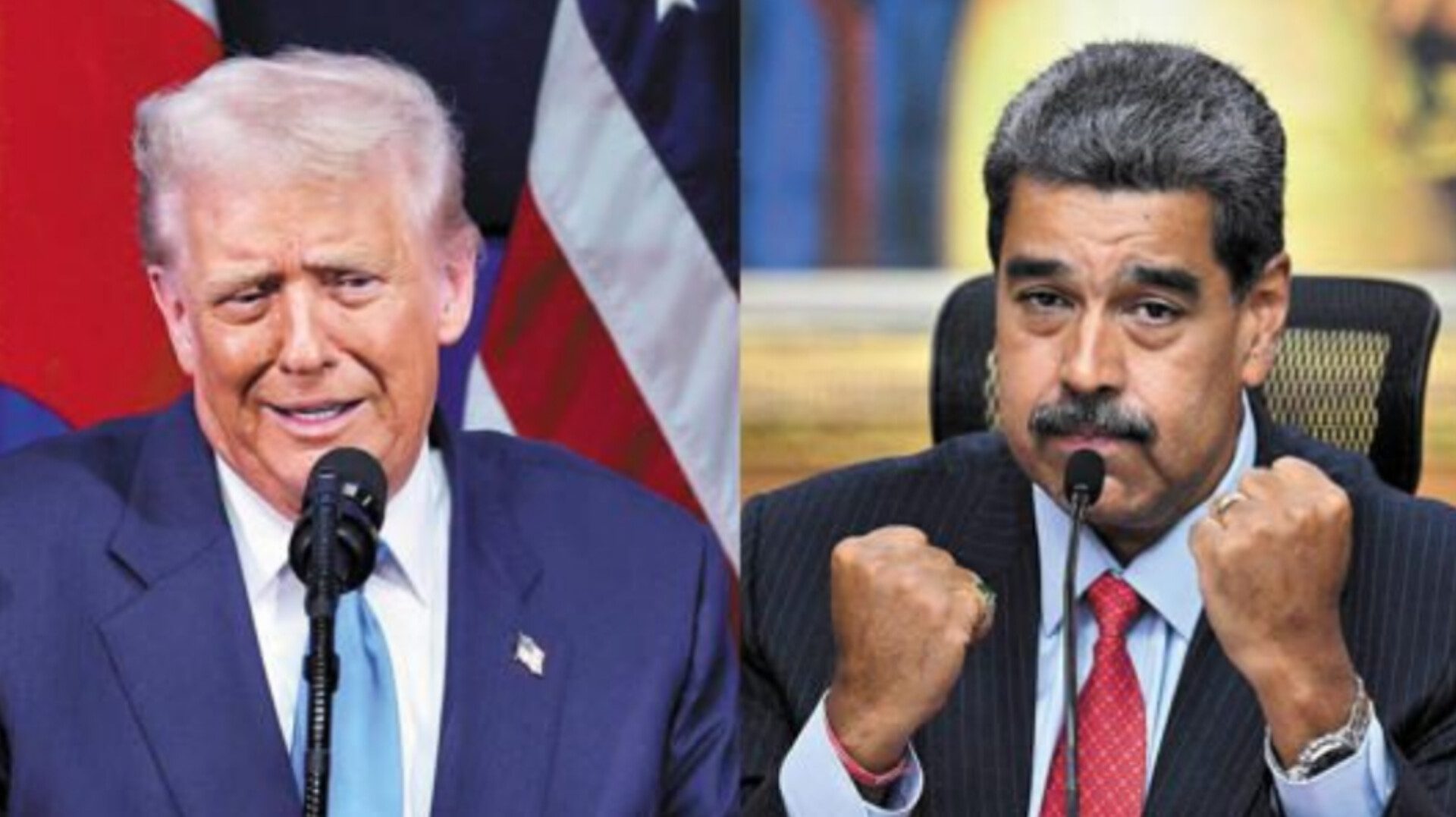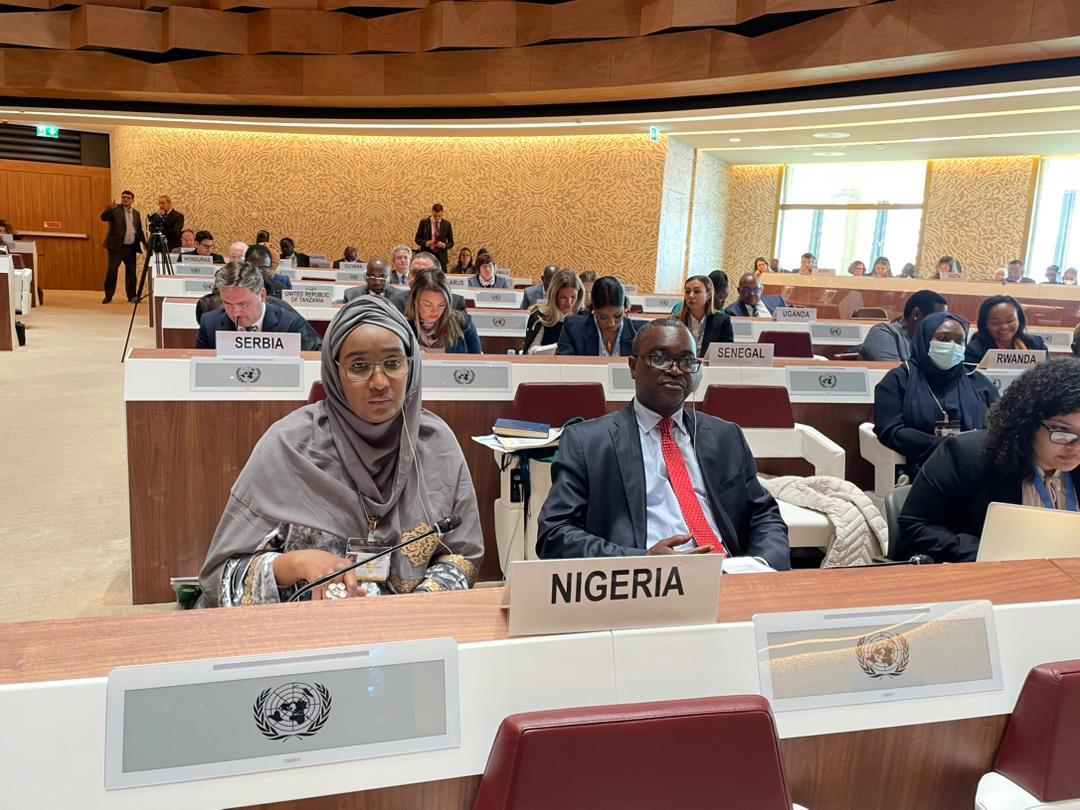The “footprint tribute,” known to commemorate the stroll and friendship building between Chairman Kim Jong-un and President Xi Jinping during Kim’s visit to Dalian, China, in 2018, has recently been identified to be removed.
According to multiple sources on the 10th, the tribute, which was located on the beach of Bangchui Island on the outskirts of Dalian where the two leaders walked and conversed, can no longer be found anymore. Recent photos obtained through North sources by JoongAngIlbo show only traces covered with black asphalt concrete where the footprints used to be.
JoongAngIlbo also obtained photos from the past showing the tribute installed, with two pairs of footprints facing the same direction side by side. Although there has been no official announcement from China regarding the installation of the tribute, it is widely known to have been installed to commemorate the stroll of the two leaders.
In light of this, there is speculation in diplomatic circles that the removal of the footprints would have been impossible without President Xi’s approval. A local source familiar with the matter said, “there is a high possibility that the central government issued instructions for the removal.”
Another source mentioned, “it is also known that the ‘7th Exhibition Hall,’ previously located in a restaurant near the Bangchui Island beach, has been closed,” adding. “Chairman Kim had also come by the exhibition hall as it displayed photos of Kim Il Sung and Kim Jong Il’s visits to Banchui Island.” The exact timing of the removal of the footprint tribute and the closure of the exhibition hall has not been confirmed.
Oh Kyung-seop, a researcher at the Korea Institute for national Unification, said, “this decision seems to be made as there is no longer a need to maintain or manage the tribute, whether due to problems in North Kore-China relations or for any other reason.”
Considering the symbolism inherent in the meeting between the two leaders, more questions are arising. Chairman Kim made a surprise visit to Dalian just a month before the first North Korea-Us summit (June 12, 2018). Chairman Kim, who rode a private plane on his way to China, had a tight schedule in order of official meetings, welcome dinner, stroll on the Bangchui Island beach, and luncheon with President Xi. The highlight of the event was the beach stroll.
At the time, the two leaders walked side by side, showcasing their friendship with only interpreters accompanying them. Bangchui Island has been a place where Chinese leaders have visited to host foreign leaders or relax since the tome of Mao Zedong. Kim Il-sung, Kim Jong-un’s grandfather, also visited the Island many times. This location also serves as the background of Chairman Kim and President Xi’s ‘stroll diplomacy.’
At the time of the summit, China’s state-owned news outlet, CCTV reportedly aired scenes of the two leaders strolling on the Bangchui Island beach. According to the Korean Central News Agency, Chairman Kim described North Korea-China relations as a “new heyday” and “an inseparable one body” to which President Xi responded, “the two countries are destined partners, bound by an unchanging relationship of loyalty.”
Against this backdrop, some view the disappearance of the footprint tribute and the closure of the exhibition hall as indications of turbulence in the relationship between the two countries.
In fact, recently, the North Korean Foreign Minister exhibited an unusual stance by issuing a statement criticizing China along with the ROK and Japan immediately after the trilateral summit on May 27. On the same day, North Korea launched a military reconnaissance satellite. This can be interpreted as a clear expression of dissatisfaction with China by Chairman Kim.
Diplomatic sources said, “despite this year marking the 75th anniversary of North Korea-China diplomatic relations, North Korea seems to be seeing China’s attitude as exceedingly inflexible.” On Zhao Leji’s visit in April the sources added that “although the third highest-ranking Chinese official visited North Korea, the country was dissatisfied because his visit did not ‘bear any gifts’.”
Turbulence between Kim, Xi: Exhibition Hall, symbol of North Korea-China Friendship, also closed




